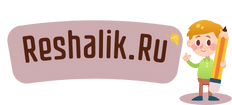Test to check knowledge of the German language Lesson with exercises 1. Agree the verb with the subject. Select personal endings for the verbs in the following sentences: 1. I translate… the German text. 2. My brother learns… in school. 3. Do you give… her many tasks? 4. We study… computer science. 5. Do you listen… attentively to the lectures? 6. My grandparents live… in the village. a) -e; b) -en; c) -st; d) -t. Exercise 2. Use the appropriate reflexive pronoun with reflexive verbs: 1. My friend is interested in sports. 2. I always wash… cold. 3. How do you prepare for the seminar? 4. The parents are relaxing… at the Black Sea. 5. Today it’s cold and we dress… warmly. 6. How are you feeling… today? a) sich; b) euch; c) mich; d) uns; e) dich. Exercise 3. Replace with the corresponding modal verb in the present tense: 1. We… handle the personal computer. 2. When the light is red, people… cross the street. 3. The children… chocolate. 4. In summer, my friends… go to Germany. 5. All students… pass the exams on time. 6. Everyone… do morning exercises. a) müssen; b) sollen; c) können; d) dürfen; e) wollen; f) mögen. Exercise 4. Determine the tense of the verbs: 1. The German tourists visited the museums in Moscow. 2. The student will write the presentation in technology. 3. The famous scientist receives the Nobel Prize. 4. The train arrived in Moscow on time. 5. I had bought an interesting book. 6. The boy walked on foot. a) present tense; b) past tense; c) perfect tense; d) pluperfect tense; e) future tense. Exercise 5. Insert the missing part of the predicate: 1. Before the test, we… all the rules again. 2. My parents… gone to Moscow. 3. I… read the book with interest. 4. The traveler… along the river. 5. How long… you stayed in vocational school? 6. The translation… not been correct. 7. He… described his trip to Germany. 8. In the library, I… met my friend. a) have; b) has; c) have; d) have; e) have/are; f) has; g) are. Exercise 6. Choose the correct translation of the following sentences: 1. The parents have brought many gifts. a) The parents bring many gifts. b) The parents promise to bring many gifts. c) The parents brought many gifts. 2. Marie went to bed early. a) Marie goes to bed early. b) Marie went to bed early. c) Marie wants to go to bed early. 3. I gave my brother a watch. a) I give my brother a watch. b) I gave my brother a watch. c) I want to give my brother a watch.
Тест для проверки знаний по немецкому языку. Урок с упражнениямиЗадание 1: Согласуйте глаголы с подлежащим. Выберите приглагательные окончания для глаголов в следующих предложениях:
1. Я перевожу… немецкий текст.
2. Мой брат учится… в школе.
3. Ты даешь… ей много заданий?
4. Мы изучаем… компьютерные науки.
5. Ты внимательно слушаешь… лекции?
6. Мои бабушка и дедушка живут… в деревне.
a) -e
b) -en
c) -st
d) -t
Решение:
1. Я перевожу… немецкий текст. — d) (-t)
2. Мой брат учится… в школе. — b) (-en)
3. Ты даешь… ей много заданий? — c) (-st)
4. Мы изучаем… компьютерные науки. — b) (-en)
5. Ты внимательно слушаешь… лекции? — t) (-st)
6. Мои бабушка и дедушка живут… в деревне. — a) (-e)
Упражнение 2: Используйте соответствующие возвратные местоимения с возвратными глаголами:
1. Мой друг интересуется спортом.
2. Я всегда моюсь… холодной водой.
3. Как ты готовишься к…
Решение:
1. Мой друг интересуется спортом.
2. Я всегда моюсь… холодной водой. — мне
3. Как ты готовишься к… (не указано продолжение предложения, невозможно определить правильное возвратное местоимение)
Совет: Для выполнения заданий по немецкому языку важно знать правила и согласовывать глаголы с подлежащими и использовать правильные возвратные местоимения с возвратными глаголами. Постоянная практика и чтение текстов на немецком языке помогут улучшить понимание речи и правильное использование грамматических конструкций.
Задание: Завершите предложение: «Как ты готовишься к…» с помощью правильного возвратного местоимения.
